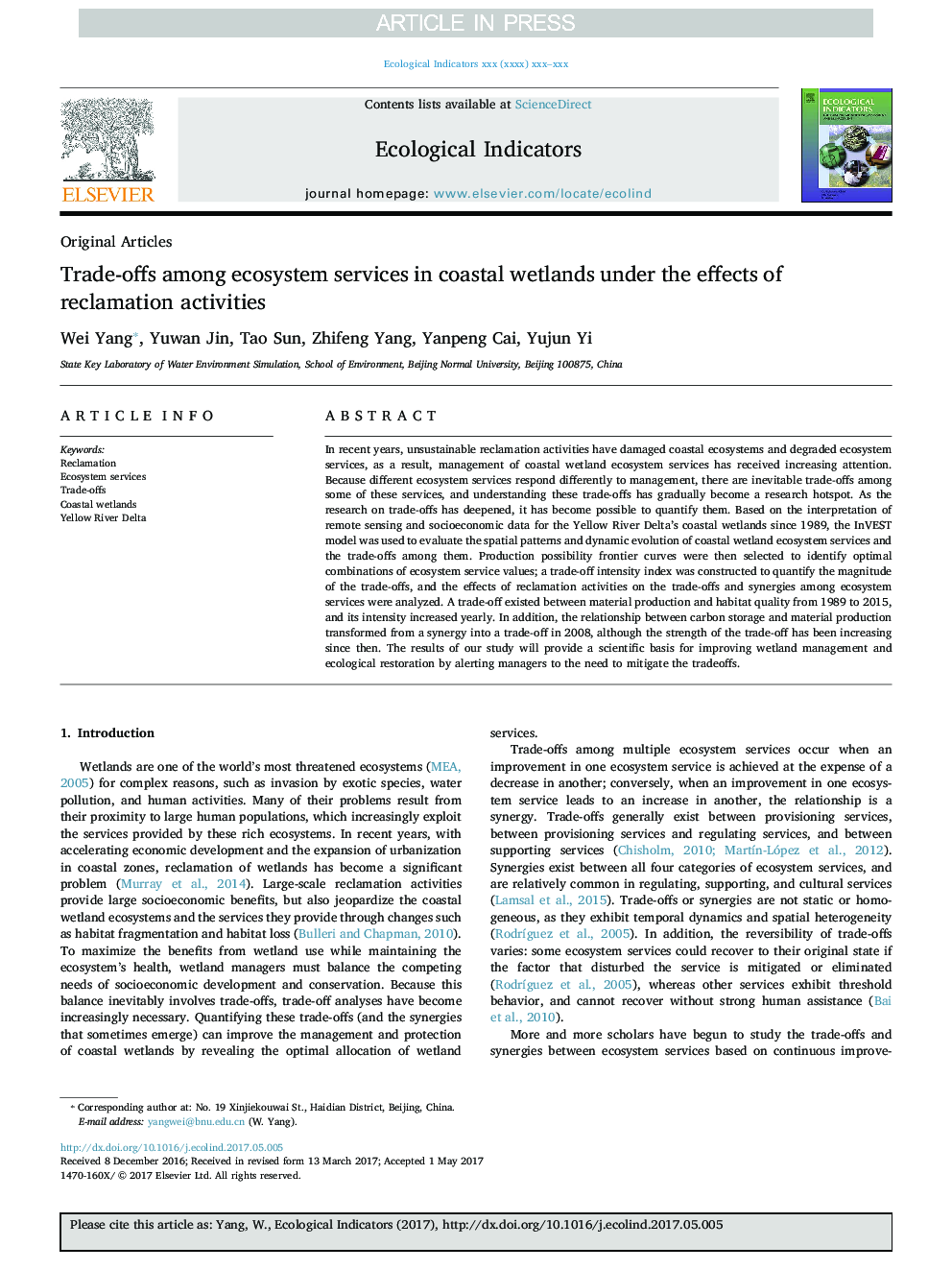| Article ID | Journal | Published Year | Pages | File Type |
|---|---|---|---|---|
| 8845279 | Ecological Indicators | 2018 | 13 Pages |
Abstract
In recent years, unsustainable reclamation activities have damaged coastal ecosystems and degraded ecosystem services, as a result, management of coastal wetland ecosystem services has received increasing attention. Because different ecosystem services respond differently to management, there are inevitable trade-offs among some of these services, and understanding these trade-offs has gradually become a research hotspot. As the research on trade-offs has deepened, it has become possible to quantify them. Based on the interpretation of remote sensing and socioeconomic data for the Yellow River Delta's coastal wetlands since 1989, the InVEST model was used to evaluate the spatial patterns and dynamic evolution of coastal wetland ecosystem services and the trade-offs among them. Production possibility frontier curves were then selected to identify optimal combinations of ecosystem service values; a trade-off intensity index was constructed to quantify the magnitude of the trade-offs, and the effects of reclamation activities on the trade-offs and synergies among ecosystem services were analyzed. A trade-off existed between material production and habitat quality from 1989 to 2015, and its intensity increased yearly. In addition, the relationship between carbon storage and material production transformed from a synergy into a trade-off in 2008, although the strength of the trade-off has been increasing since then. The results of our study will provide a scientific basis for improving wetland management and ecological restoration by alerting managers to the need to mitigate the tradeoffs.
Related Topics
Life Sciences
Agricultural and Biological Sciences
Ecology, Evolution, Behavior and Systematics
Authors
Wei Yang, Yuwan Jin, Tao Sun, Zhifeng Yang, Yanpeng Cai, Yujun Yi,
